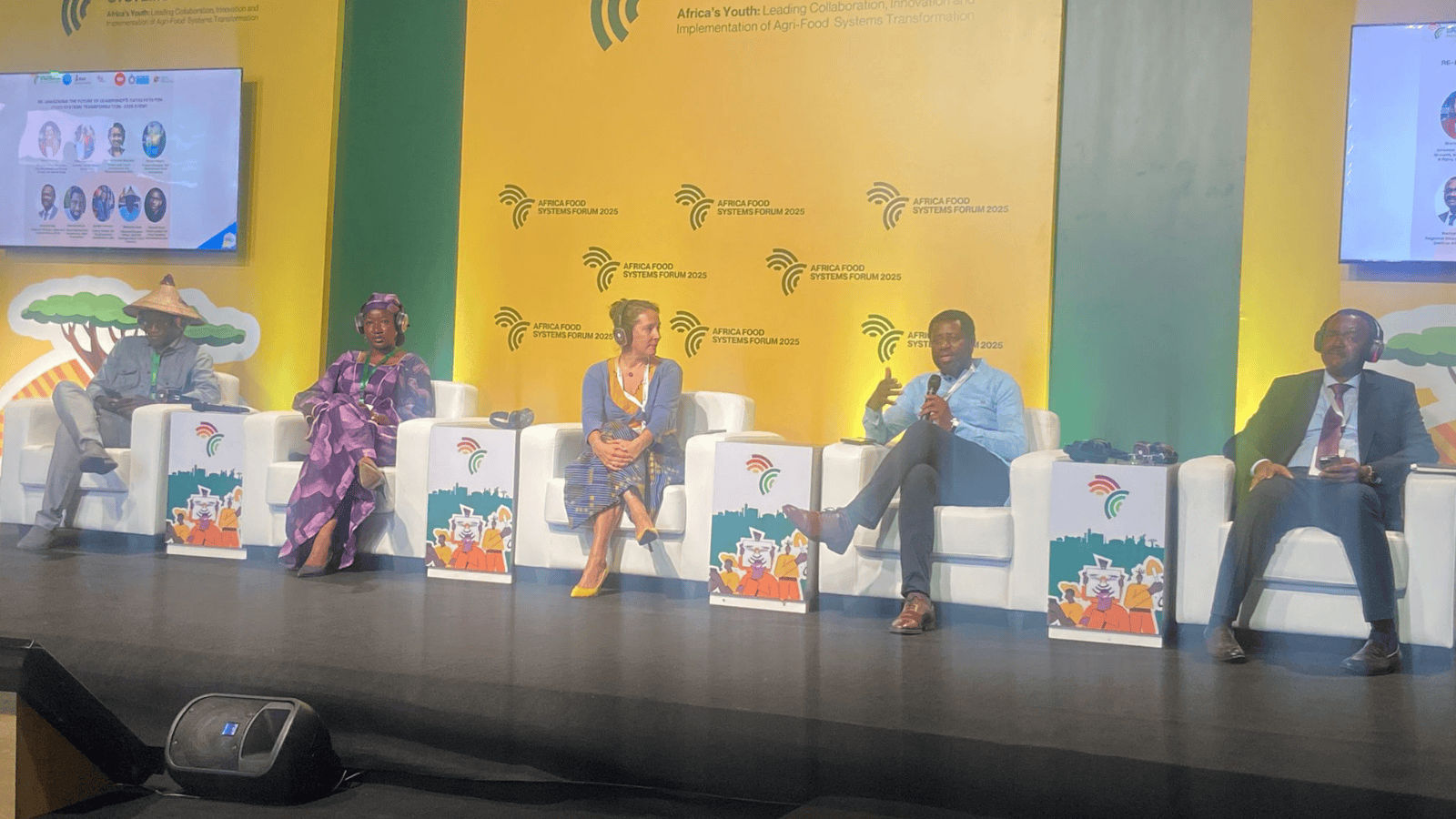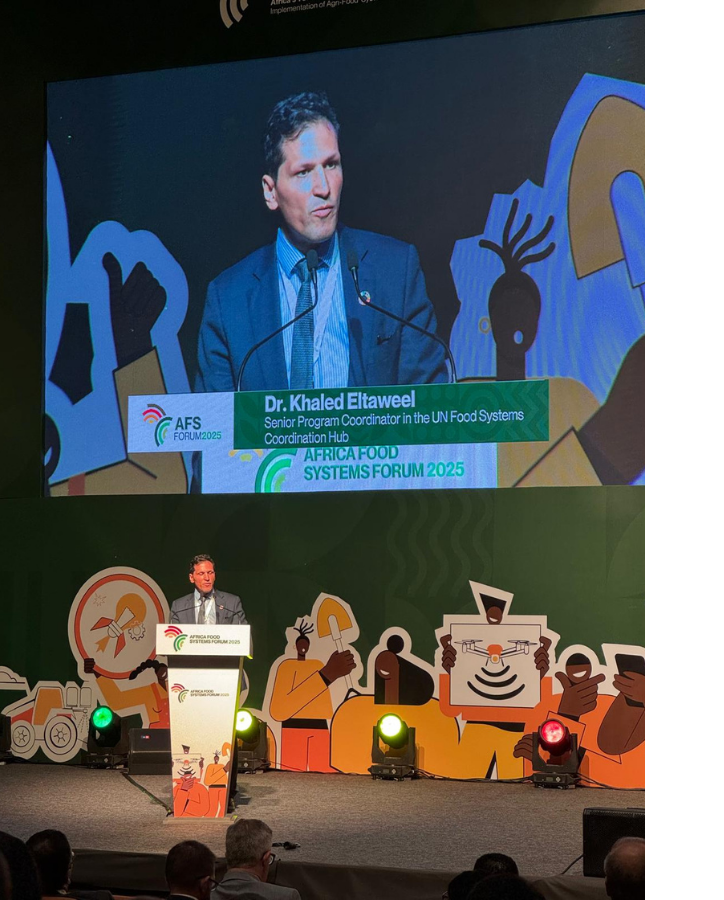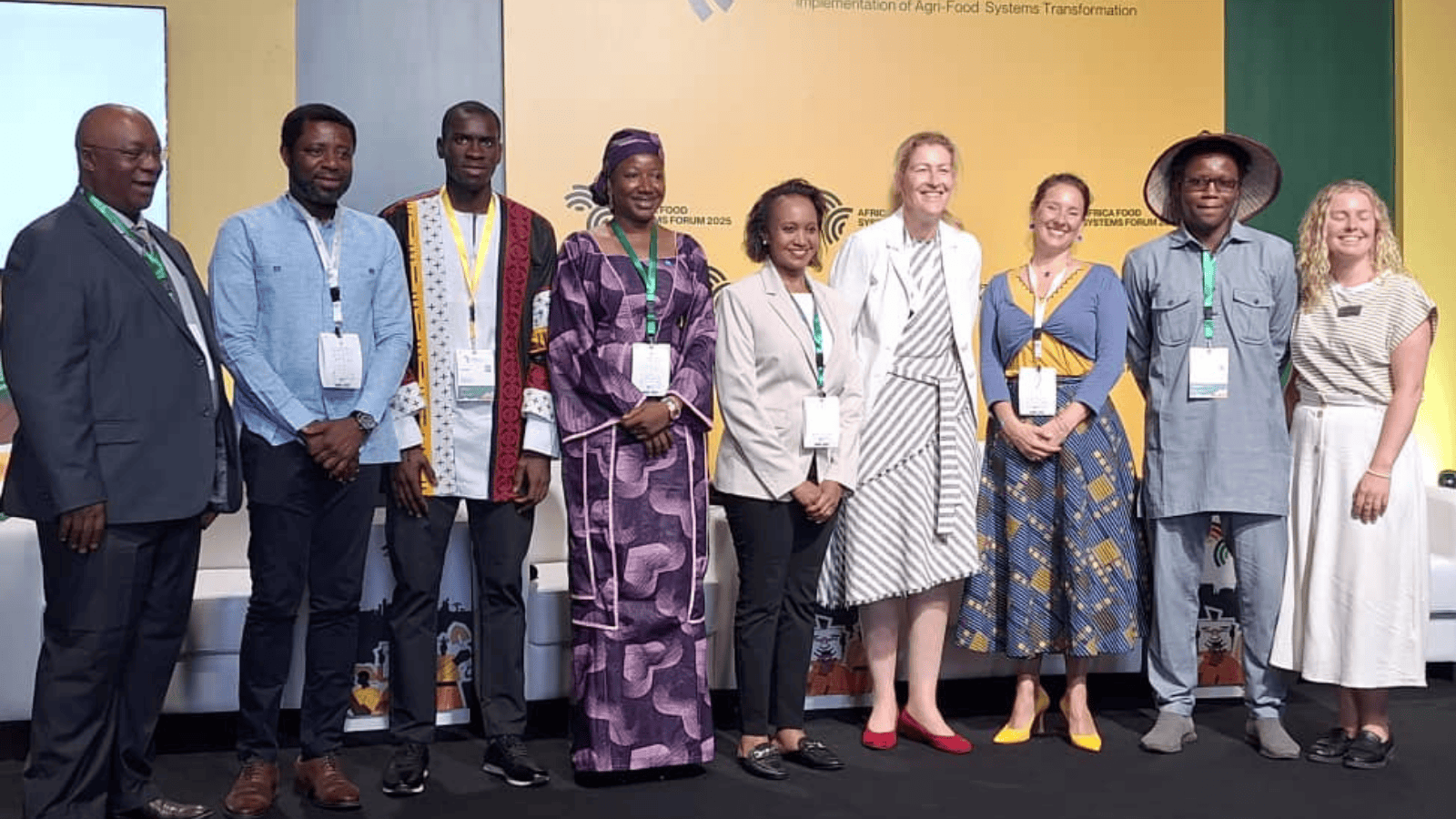Carrying momentum forward: Africa’s food systems after UNFSS+4

Dakar, Senegal – In early September, government leaders, farmers, youth advocates, and development partners gathered in Dakar for the Africa Food Systems Forum 2025 dedicated to “Africa’s Youth: Leading Collaboration, Innovation, and the Implementation of Agri-Food Systems Transformation”. The conversations carried with them the momentum of July’s UN Food Systems Summit +4 (UNFSS+4) Stocktake in Addis Ababa, where the UN Secretary-General’s Call to Action urged countries to quicken the pace of food systems transformation. Africa, home to some of the world’s most pressing food security challenges and also some of its most ambitious, promising and innovative solutions, was at the center of both gatherings.
At UNFSS+4, African leaders presented evidence of progress: 44 countries now have national food systems pathways, many already integrated into government budgets and sectoral strategies. These plans stretch beyond agriculture to link nutrition, health, education, and climate resilience. Programs like locally produced school meals – linking local farmers to better diets for children – work to create a triple win: improved health, stronger local markets, and new jobs, often with positive environmental externalities.
But the challenges remain stark. According to the 2025 State of Food Security and Nutrition in the World report, 307 million Africans – over 20% of the continent’s population – faced hunger in 2024. Stunting among children under five exceeds 30% in some regions. The cost of a healthy diet rose faster in Africa than anywhere else in the world. Climate shocks are a key driver, fueling droughts, floods, and soil degradation that have cut agricultural productivity growth by 34% since 1961. Rising sea levels threaten coastal livelihoods, while unsustainable practices accelerate biodiversity loss. The social consequences are severe: food systems employ nearly two-thirds of Africa’s workforce, meaning every climate blow risks deepening poverty and instability.

Still, there is reason for optimism. “Africa is embracing its own plan,” said Khaled Eltaweel, Senior Program Coordinator at the Hub, during the Forum’s opening plenary. He pointed to the UNFSS African Common position, the African Union’s CAADP-Kampala Declaration and the continent’s climate resilience strategy as proof of political will. These frameworks, he argued, place food systems transformation at the heart of Africa’s economic future and should inspire global action.
The Hub highlighted three areas where Africa can drive change:
1. Deepening the food systems approach. Transformation requires coordination across ministries and actors. The Hub’s Convergence Initiative, active in five African countries with another five in progress, fosters that alignment by linking food, climate, and nutrition agendas at the national level. The EU-funded “Scalable Success Models” project further strengthens national institutions, helping governments operationalize food systems pathways and embed them into strategies and budgets.
2. Harnessing science and innovation. The Hub’s Youth Leadership and Science-Policy Interface initiatives build youth leadership while strengthening evidence-based policymaking. Combined with digital tools and applied research, these approaches offer pathways to raise productivity without depleting natural capital.
3. Mobilizing finance. Finance remains the greatest gap. Many countries face debt burdens and shrinking aid flows, but are also witnessing the emergence of a thriving private sector, largely based on the potential of youth to bring innovation to food systems. The Joint SDG Fund Food Systems Window supports systemic interventions through grants of up to USD 2 million. The 3FS tool, developed by IFAD and the World Bank in collaboration with the Hub, is helping countries track spending, identify gaps, and guide smarter financing.
Youth and women, too, were central in Dakar. At the side event Re-Imagining the Future of Leadership, co-organized by the Hub and partners, young leaders joined policymakers and investors to map out four catalysts for transformation: ecosystem coordination, economic opportunities for youth, intergenerational dialogue, and youth leadership itself. Their Call to Action urged governments to bring youth into decision-making, invest in skills, unlock finance, foster intergenerational collaboration, and leverage technology for resilience. “Youth are not just beneficiaries of food systems change – they are architects of transformation,” the declaration affirmed.

Side Event, “Re-Imagining the Future of Leadership and Catalysts for Food Systems Transformation”, co-organized by: SNV (Session Lead); IFAD; Netherlands Food Partnership (NFP) and Young Expert Program (YEP); UN Food Systems Coordination Hub, and Erasmus Centre for Entrepreneurship (ECE).
Regional integration was another strong theme. With the African Continental Free Trade Area opening new corridors for trade and the Kampala Declaration laying the groundwork for holistic action on food systems in 2026–2035, Africa is advancing sustainable food systems as a shared continental pvision.
The UN Food Systems Coordination Hub and its UN system partners pledged to continue working with the African Union Commission and AUDA-NEPAD to support countries in aligning national pathways with updated priorities and continental frameworks. This includes ensuring accountability through mechanisms like the CAADP Biennial Review and working closely with non-state actor networks, such as the CAADP Non-State Actors Group and the African Food Systems Parliamentarian Network (AFSPAN).
The road ahead is complex – conflicts, financing gaps, and climate impacts loom large. Yet Dakar showed how Africa is amplifying the UNFSS+4 momentum with practical steps and renewed leadership. For Africa, where food systems underpin livelihoods, health, and natural wealth, transformation is not optional. It is the path to resilience, equity, and prosperity – and one the continent is ready to walk together.
